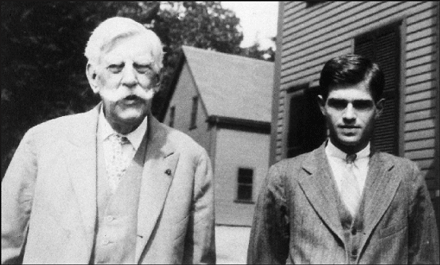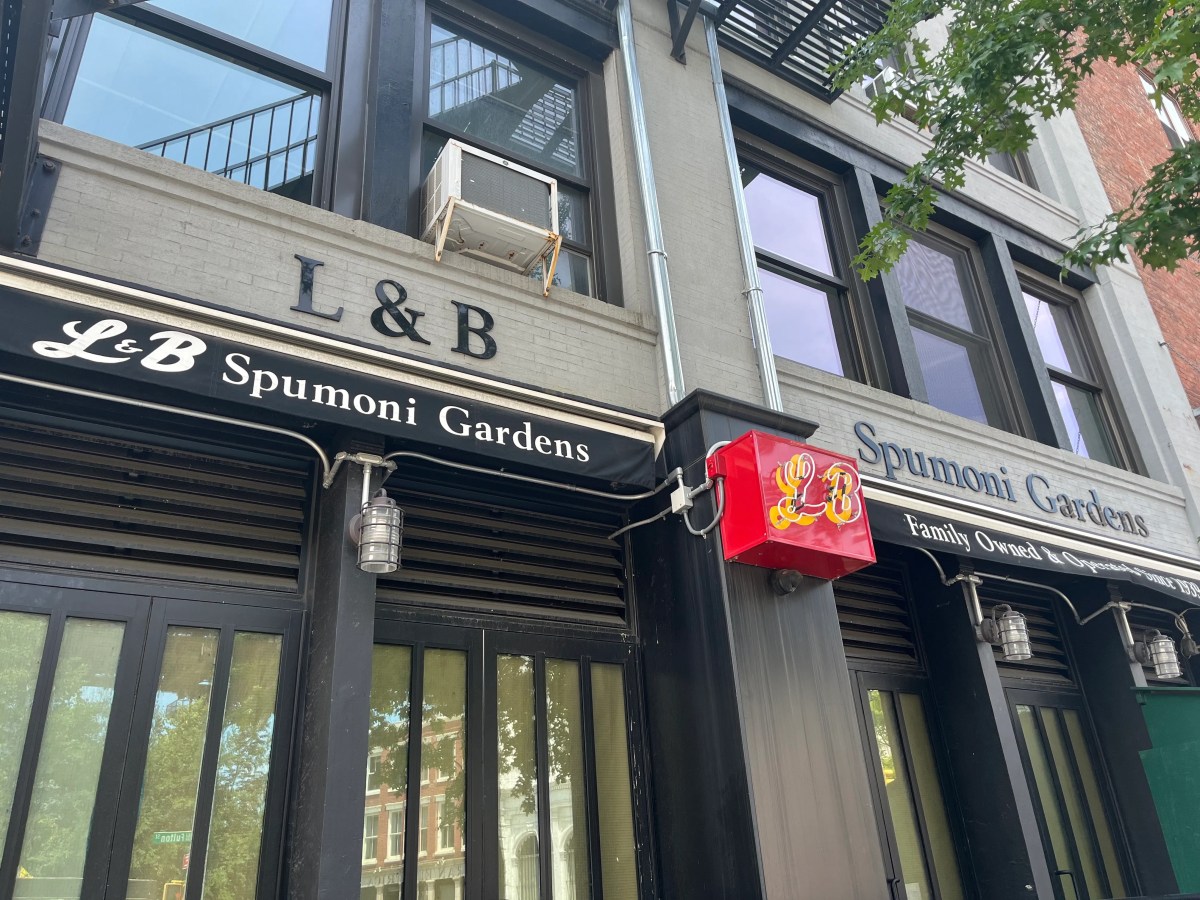By Ed Gold
The Alger Hiss-Whittaker Chambers battle of the last century showed continuing staying power last Thursday at New York University’s Vanderbilt Hall during an all-day conference. But the stress was on an added and controversial issue — homosexuality.
Several of the many speakers dealt with the sexual issue, as the mystery surrounding Hiss’s alleged role as a Soviet agent continued unabated. Hiss in the 1930s was a highly regarded member of the State Department, and Chambers an admitted former Soviet agent who had defected and become virulently anti-Communist.
Before an audience of about 200, most of whom were old enough to have personal memories of the conflict that paralyzed the liberal community, Timothy Hobson, Hiss’s stepson, for the first time publicly outed himself as gay and told why he believed Chambers’s charges against Hiss were lies.
He stated that he had lived with Hiss and Priscilla, his mother, in Manhattan from the age of 3 to 14, precisely the period Chambers said he visited often and collaborated with Hiss as a fellow Soviet agent.
Never during that period, Hobson insisted, did he ever see Chambers, who had claimed he knew Hobson as a shy boy.
“This is the first time I am telling my story,” Hobson said. “I was never shy and always outspoken. There were no visits from Chambers or anyone with his aliases. And there was no typing of stolen government materials by Hiss or my mother, Prossie, who happened to be one of the world’s worst typists.”
He went on: “I would never lie about this. When I joined the Navy I was discharged when I told them I was gay. I graduated from college magna cum laude but wasn’t accepted at N.Y.U. Law School,” he said, implying his sexual orientation was the cause.
“When my father went on trial, he would not let me testify on his behalf because he thought publicly admitting my gayness would cause future problems for me.”
If you conclude that Chambers was a liar, the case against his stepfather collapses, Hobson argued. And, he added, “They never asked Chambers publicly if he was gay,” although he later admitted he was.
Hobson concluded that Chambers had a crush on Hiss that was not returned and that led him to make Hiss his victim. The audience, clearly sympathetic to Hobson — and his half-brother, Tony Hiss, who also spoke — gave him a standing ovation.
Tony Hiss, former writer for The New Yorker and Greenwich Village resident, suggested his father was a victim of the times and the emotional opposition in the country toward Communism and the Soviet Union.
Tony Hiss noted that after his father’s first trial ended in a hung jury, Richard Nixon, then in Congress and the point man against Alger Hiss, “called the judge at the first trial a traitor.” Hiss’s son added that his father “was more of an expert on Groucho Marx than Karl Marx.”
But other specialists on the Hiss-Chambers case, while expressing sympathy for the Hiss sons, said the evidence against Hiss had been overwhelming, including new material released from Soviet archives.
Possibly the strongest condemnation of Hiss at the N.Y.U. conference came from G. Edward White of the Virginia Law School, who has written extensively on the subject.
White suggested that Hiss was fortunate in not being found guilty of espionage, because by 1950 the statute of limitations had expired on that charge. Instead, the government won a conviction on perjury, which sent Hiss to prison for four years. White argued that Hiss had stolen State Department documents, including U.S. plans for the Yalta Conference in 1945.
White insisted that an intercepted telegram referring to a Soviet agent codenamed “Ales” contained materials that “sounded very much like Hiss,” adding that “Ales” in the Cyrillic alphabet spells “Hiss.” A footnote was added to the cable: “Probably Alger Hiss.” A dozen years ago, the U.S. National Security Agency released hundreds of intercepted Soviet telegrams, including the “Ales” cable.
White suggested that “Hiss enjoyed living a secret life,” and was a member of a group within the New Deal leadership that felt support for the Soviet Union was appropriate.”
Hiss, he added, was “not naive but a risk-taker who had a strong belief he could personally convince people of his innocence.” White said he found the Hiss case a “tragedy for the nation because you could believe Hiss was guilty without having to support McCarthyism.”
Two other specialists on Soviet intelligence, Kai Bird, an author, and Svetlana Chervonnaya, a Moscow-based scholar, challenged the theory that Hiss was “Ales” and suggested another State Department delegate to Yalta might be the spy.
Ironically, photos of the Yalta meeting with Stalin and Churchill show Hiss standing directly behind Franklin Roosevelt.
The homosexual issue came to the fore once more from Timothy Naftali, author of a book on Hiss and Chambers, and a key figure at the Nixon Library.
He contended that homosexuality was a sub rosa but not public issue during the struggle between Hiss on the one side and Nixon and Chambers on the other.
Naftali alleged that some journalists and politicians saw the Hiss-Chambers conflict basically linked to homosexuality. Management people at Time magazine, which was strongly anti-Hiss, saw the conflict as a “battle between two queers,” Naftali alleged. There was talk, he said, that Chambers had been involved in pedophilia with Hobson, Hiss’s stepson.
Chambers, he noted, had admitted to homosexuality in 1949 in what was then a very hostile environment.
“Pinkies were considered as dangerous as pinkos,” Naftali said.
David Greenberg of Rutgers University found an ironic comparison between Hiss and his nemesis, Nixon. Both had great success in their careers, Hiss as a star at the State Department, possibly being groomed to be secretary of state, and Nixon, twice elected president. Both, Greenberg said, had their careers ruined by their own behavior, Nixon by Watergate, and Hiss as a Soviet agent.
And both, Greenberg suggested, sought redemption in later life, Nixon as a foreign policy expert, and Hiss with his cool insistence on his innocence and his ability to win back some support in liberal ranks by pointing to his prominent enemies: Chambers, Nixon, members of the House un-American Activities Committee, J. Edgar Hoover and later, Joe McCarthy.
White probably struck a note that all could support: “The debate about Hiss’s guilt or innocence will go on and on.”






































